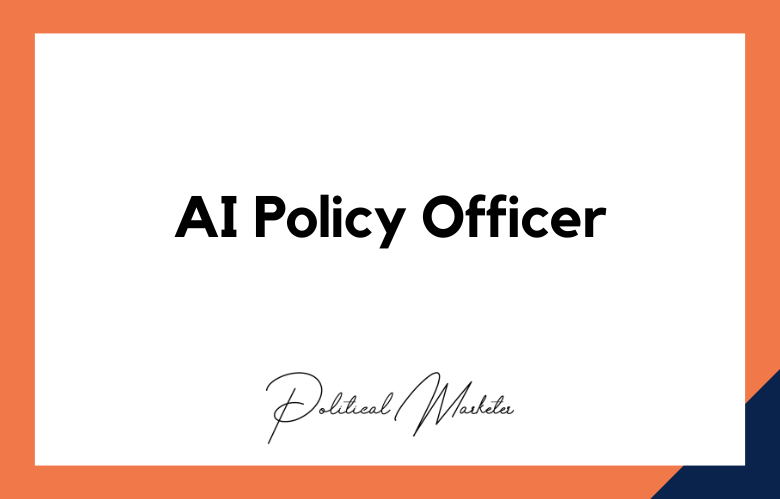Generative Artificial Intelligence (AI) has been making waves in the tech industry and has numerous potential applications, including political campaign messaging. However, using generative AI in political campaigns also raises concerns about data privacy. Political campaigns rely on vast amounts of data, and as the use of AI in politics becomes more common, there is a danger of this data being misused or mishandled. It will explore the challenges of balancing the use of generative AI in political campaigns with the need for Political data privacy.
Firstly, it is essential to understand what generative AI is. Generative AI uses algorithms to create new content that imitates human output. This can include developing unique images, text, or even entire videos.
Generative AI can create personalized political messages tailored to individual voters in political campaigning. However, for this process to work, political campaigns need access to vast amounts of data on individuals, including personal information, voting history, and more.
The Complexity of Generative AI and data privacy
Artificial Intelligence (AI) has changed how we approach data and technology. One of the fields within AI, Generative AI, is leveraging machine learning to create a new breed of intelligent algorithms that can be used in various applications, including political research.
Despite its potential benefits, Generative AI poses a substantial challenge to data privacy regarding political research. We will explore the complexity of Generative AI and examine the ethical questions of political data privacy in the age of AI.
Generative AI is a subset of AI that creates new data based on learning from existing data. The data generation method is based on unsupervised machine learning algorithms that can make new data based on existing patterns in data sets.
The Intersection of Generative AI and Political Data Privacy: A Delicate Balancing Act
As the world increasingly relies on technology, personalized data has become the currency of the digital age.
While individuals are quick to accept the benefits of AI, whether it’s shopping recommendations or automated customer service, many are hesitant to surrender their political beliefs to machine-driven algorithms.
The tension between privacy and progress has only increased with the rise of generative AI capable of producing realistic outputs from limited inputs.
We will explore the relationship between generative AI and political data privacy and the unique challenges of balancing innovation and ethical concerns.
Ensuring Political Data Privacy in the Age of Generative AI
In recent years, artificial intelligence (AI) has become increasingly popular across industries, including politics.
Generative AI, in particular, has the potential to transform the way political campaigns are run and how candidates connect with voters. However, as with any emerging technology, there are challenges, including privacy concerns around using political data.
We’ll explore the risks and opportunities that generative AI presents for political campaigns and discuss strategies for ensuring political data privacy in the age of AI.
A Closer Look at Generative AI and the Challenge of Political Data Privacy
In the digital age, data privacy is a significant concern. With the rise of emerging technologies such as generative AI, the potential for misuse of personal and political data is higher than ever.
Artificial intelligence has the power to create compelling content that can manipulate opinions and influence decisions, which is why protecting data privacy is crucial in today’s world.
One of the biggest challenges of political data privacy lies in generative AI, which poses a significant threat to people and political institutions. I will delve deeper into generative AI and how it affects political data privacy.
Generative AI and Political Data Privacy: The Basics
Generative AI uses algorithms and machine learning to generate new and novel data. This is done by analyzing existing data and creating a new set of similar data.
Political data, which includes voter data, political opinions, beliefs, and affiliations, is a sensitive type of data that bad actors can exploit for political gain. Generative AI can be crucial in creating fake news, deep fakes, and other politically motivated propaganda, further complicating political data privacy issues.
The Role of Social Media
Social media platforms are a treasure trove of political data and have already been used to influence the outcome of political events, such as the US presidential elections 2016.
With the help of generative AI, individuals and organizations with malicious intent can craft convincing and highly personalized messaging that can sway public opinion, further eroding political data privacy.
While social media companies claim to protect user data, there have been numerous cases where they have failed to do so, and the use of generative AI complicates matters, creating new vulnerabilities and challenges.
The Ethics of Generative AI and Political Data Privacy
Using generative AI for political gain raises ethical concerns, such as manipulating public opinion, silencing those who disagree with a particular agenda, and eroding democratic values.
Therefore, companies and individuals who use generative AI must uphold ethical standards and take responsibility for its consequences. This means increased transparency, proper regulation, and accountability for the use of generative AI in political contexts.
Mitigating the Risks of Generative AI and Political Data Privacy
Increasing awareness of these issues among the general public and policymakers is critical to mitigate the risks associated with generative AI and political data privacy.
This can be done by creating campaigns for digital literacy, educating individuals on how to spot deep fakes and fake news, and calling for effective legislation that holds individuals and companies accountable for the unethical use of generative AI in political contexts.
Social media companies and other entities that collect political data should be transparent about their data collection and usage policies. They should make their data available for analysis by independent third-party organizations.
The Future of Generative AI and Political Data Privacy
It is clear that generative AI has the potential to transform politics radically, but we must be vigilant about the risks associated with its use. In the future, we can expect to see new and more sophisticated technologies, making it even more challenging to protect political data privacy.
To stay ahead of the curve, we must work towards greater awareness, collaboration, and regulation of these issues to harness the power of generative AI for good and prevent its misuse for political gain.
Conclusion
Generative AI offers new opportunities for political campaigns to create personalized messages. However, using this technology in politics raises serious concerns about data privacy, security, and ethics.
To ensure the successful use of generative AI in political campaigns, there must be transparent regulation, security systems that protect data privacy, and ethical considerations. Only then can productive AI technology in political campaigns be successful and honest.
Generative AI and the Challenge of Political Data Privacy: FAQs
What Is Generative AI In The Context Of Political Campaigns?
Generative AI refers to artificial intelligence models that can create original content, such as text, audio, or visuals, based on learned data. In politics, it’s used for content automation, voter engagement, and campaign messaging.
Why Is Political Data Privacy A Concern With Generative AI?
Generative AI systems rely heavily on large datasets. When these include voter information or behavioral data, there’s a risk of unauthorized usage, profiling, and privacy violations.
How Does Generative AI Collect Political Data?
AI systems gather political data from campaign CRMs, social media, online forms, and public databases, sometimes without users’ explicit consent or awareness.
Can Generative AI Be Used To Manipulate Voter Behavior?
Yes. Personalized AI-generated content can influence voter opinion by microtargeting emotional or ideological vulnerabilities, raising ethical concerns.
What Types Of Political Data Are Most At Risk?
Voter profiles, behavioral analytics, donation histories, geographic preferences, and sentiment data are among the most sensitive and are often exploited by AI systems.
Are There Regulations Governing Generative AI In Politics?
While data protection laws like GDPR and India’s DPDP Bill offer guidelines, most regions lack AI-specific legislation governing political use cases.
What Are The Risks Of Data Leakage In AI Campaign Tools?
AI tools that aren’t securely built or properly vetted can leak sensitive voter data, opening the door to hacking, identity theft, or electoral manipulation.
How Can Political Campaigns Use AI Responsibly?
Applying data minimization principles, securing voter consent, conducting regular audits, and using ethical AI frameworks when building or using generative models.
Is Consent Required To Use Voter Data With AI Tools?
Yes. Ethical and legal best practices require explicit consent before processing or analyzing voter data using generative AI systems.
What Is Synthetic Voter Data And How Is It Used?
Synthetic voter data is artificially generated information for simulations or training AI models without exposing real voter identities, reducing privacy risk.
Can Generative AI Create Fake Political Personas?
Absolutely. AI can generate convincing text, voice, or video profiles that mimic real people, posing authenticity and campaign trust risks.
How Do Campaigns Balance Personalization With Privacy?
Using anonymized data, segmenting audiences at a macro level, and avoiding manipulative or invasive AI-driven targeting.
What Happens If Generative AI Misuses Political Data?
Under data protection laws, misuse can result in legal consequences, reputational damage, voter distrust, and regulatory penalties.
Are Voters Aware Their Data Is Being Used By AI?
Often, no. Many citizens remain unaware that AI tools are scraping and analyzing their social interactions, comments, or online behaviors.
How Do Deepfakes Relate To Political Data Privacy?
Deepfakes generated using political data—like facial scans or voice samples—are a direct violation of privacy and can be weaponized for misinformation.
What Are The Ethical Guidelines For Generative AI In Politics?
They include transparency, fairness, accountability, consent-driven usage, and preventing bias or discrimination in AI outputs.
Can AI Be Used To Improve Political Transparency Instead?
Yes. When deployed responsibly, AI can help track campaign funding, identify fake news, and provide open data analytics to foster public trust.
Should Political Parties Appoint Data Privacy Officers?
Yes. Dedicated data privacy officers can ensure compliance with privacy regulations, ethical AI usage, and proper data governance protocols.
What Role Do AI Audits Play In Political Campaigns?
AI audits assess the security, fairness, and privacy compliance of tools used, which is crucial for responsible political technology adoption.
How Can Voters Protect Their Data From AI Misuse?
Voters can limit personal data sharing, review campaign privacy policies, adjust social media permissions, and support pro-privacy legislative efforts.










